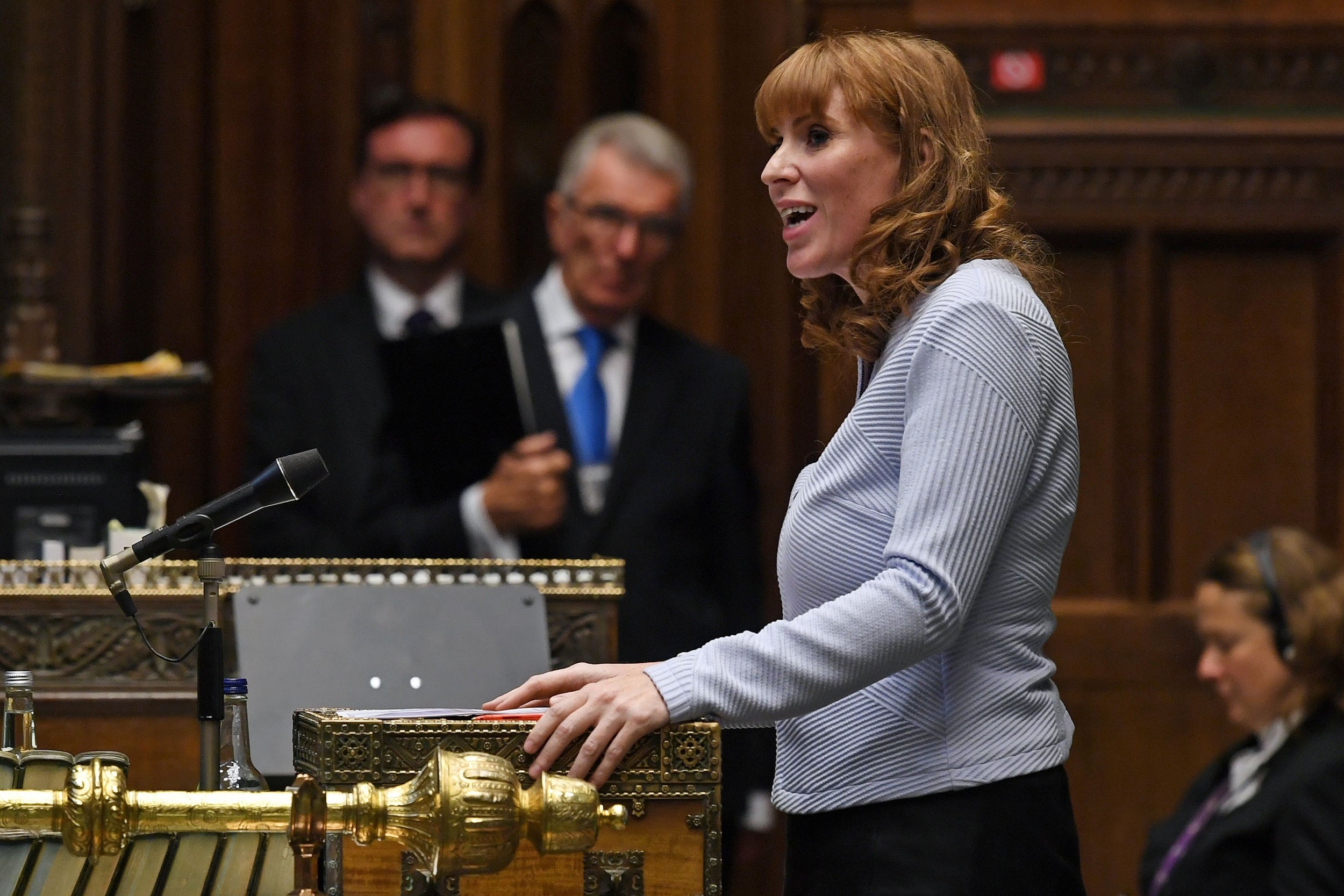Angela Rayner lays down a marker in her first outing as sleazefinder-general
Labour’s deputy leader has made her debut as the aggressive attacker of Conservative conflicts of interest, writes John Rentoul


Penny Mordaunt is about to publish a book called Greater: Britain After the Storm, which looks like one of those collections of platitudes published by US politicians considering a presidential election run.
As defence secretary, she was a potential candidate to succeed Theresa May, but didn’t, in the end, put her name forward in the leadership contest, backing Jeremy Hunt instead. Despite that, she was brought back into government by Boris Johnson in February last year, as paymaster general, an antique ministerial post just below cabinet level.
Her responsibilities are nebulous, but include deputising for Michael Gove and Lord Frost, two cabinet ministers who are also based in the Cabinet Office, and so she was in the Commons today to answer a question for Gove asked by Angela Rayner.
This was calculated politics on both sides. Labour is keen to keep the “sleaze” theme running, and Rayner is keen to lead the assault in her new, higher profile role. So she tried to drag Gove to the chamber to answer a question about when the register of ministerial interests would be published. This is expected to contain the information about who paid for what in redecorating Boris Johnson’s Downing Street flat.
Gove, naturally, did not want to be dragged to the chamber. I am sure that he would have enjoyed denouncing Labour’s opportunism based on “innuendo and smear” as much as Mordaunt did, and he would have relished taking on someone who has – if nothing else – proved herself a formidable politician in the past two weeks. But it would have been dancing to Labour’s tune to send a cabinet minister into battle.
That is why Mordaunt came to the dispatch box, but she was not the standard junior ministerial stand-in sent in to mumble through the civil service brief and suffocate an opposition attack by smothering it with tedium. This was a high-stakes tussle between two ambitious politicians who still have names to make.
The substance of their exchanges was simple enough. Mordaunt said the register of ministerial interests would be published by the end of this month. Rayner asked a supplementary question in which she explained why it mattered who paid for the prime minister’s flat: “Who does the government answer to: the public or private interests?” Then she threw in allegations of conflicts of interest in the awarding of PPE contracts, and in the corporate roles of Lord Udny-Lister, the prime minister’s former adviser who resigned as part-time Gulf envoy last month.
Mordaunt said that most of the charges were not a matter for the government, but she helpfully summarised her opponent’s accusation. “The charge she makes is that the people she names are somehow on the take. That they have been focused not, over the last 16 months, on working their socks off to save lives and get the vaccinations up and running,” she said, “but to do a mate a favour.”
She accused Rayner of making up conflicts of interest: “This is why the Labour line of attack is not getting traction, well-rehearsed though it is: because it is not plausible.” Mordaunt claimed that the public could “see through” Rayner’s performance: “The urgent question today has more to do with Labour’s internal politics and divisions than the conduct of members of this house and enterprises that have been working to help the NHS and to save lives.”
Rayner looked satisfied with her debut in her new role. She had not drawn blood, but she had put a number of allegations on the record and forced the minister to repeat them. Mordaunt offered a high-level defence, and did not deign to engage in a point-by-point rebuttal, which leaves plenty of scope for a number of investigations to cause the government problems over the months to come.
Rachel Reeves, who shadowed Gove before the Labour reshuffle, did not gain much traction, as Mordaunt put it, before the 6 May elections, with the “return to Tory sleaze” message. But that could be because the vaccines are going well. Eventually, that vaccine-boosted popularity will wear off, and questions of Tories being “somehow on the take” are likely to persist. Rayner is determined to make sure that they do.



Join our commenting forum
Join thought-provoking conversations, follow other Independent readers and see their replies
Comments